
Synthetic chemicals like sulfuric acid and ammonia drive innovation.
Humans probably began to combine these substances before history was recorded. We know that humans began combining metals (copper and tin) about 5,000 years ago to create a flexible metal called bronze. The invention of bronze was an important event, as it made it possible to produce a huge variety of new tools, weapons, and armor. It is a bronze alloy (a combination of many metals and other elements) and alloys were used as raw materials in construction and trade. Over the past few hundred years, a combination of different elements has led to the production of stainless steel, light aluminum, foil, and other very useful products. At present, synthetic chemical compounds have also transformed the food industry.
Synthetic chemical compounds are widely used in the pharmaceutical industry to develop drugs and medications. Chemists synthesize molecules with desired biological activities to treat diseases and improve human health. Examples include antibiotics, antiviral drugs, anticancer agents, and pain relievers. Polymers are large molecules composed of repeating subunits called monomers. Synthetic polymers are created by chemically linking monomers together. They have diverse applications in industries such as plastics, textiles, adhesives, and coatings. Examples include polyethylene, polypropylene, polyvinyl chloride (PVC), and polystyrene.
Agrochemicals are synthetic chemical compounds used in agriculture to enhance crop yield and protect plants from pests, diseases, and weeds. Pesticides, herbicides, insecticides, and fertilizers are examples of synthetic agrochemicals. Synthetic dyes and pigments are widely used in industries such as textiles, printing, paints, and cosmetics. They provide color to various products and materials. Examples include azo dyes, phthalocyanine pigments, and fluorescent dyes. Surfactants are synthetic compounds that lower the surface tension between two substances, allowing them to mix more easily. They are used in detergents, soaps, personal care products, and industrial applications. Examples include sodium lauryl sulfate, cetyltrimethylammonium bromide, and polysorbate.
Industrial chemicals are synthesized for various industrial applications. They include solvents, acids, bases, and reagents used in manufacturing processes, research, and development. Examples include sulfuric acid, hydrochloric acid, acetone, and methanol. Synthetic chemical compounds are used in cleaning agents, cosmetics, and personal care products. They provide cleansing, moisturizing, and other desired properties. Examples include sodium hypochlorite, sodium hydroxide, glycerin, and various synthetic fragrances.
The combination of different elements has made it possible for humans to prepare cheap and flavorful food and preserve it for a long time by using chemical preservatives. Chemical compounds are also used to create a wide range of edible tissues from crisp to chewy and soft. Synthetic chemical compounds have also had a profound effect on the pharmaceutical industry. By combining active and inactive chemicals in pills, researchers and pharmacists can now produce the drugs needed to treat a variety of disorders.
Synthetic chemical compounds are essential in the production of plastics and resins. These materials are used in a wide range of applications, including packaging, construction, automotive, and electronics. Examples include polyethylene terephthalate (PET), polyurethane, epoxy resins, and polyvinyl acetate (PVA). Synthetic fibers are manufactured fibers created through chemical processes. They are used in textiles and apparel, offering advantages such as durability, wrinkle resistance, and specific performance properties. Examples include polyester, nylon, acrylic, and spandex. Specialty chemicals are synthetic compounds that are used for specific applications or industries. They encompass a wide range of products, including catalysts, adhesives, coatings, electronic chemicals, and specialty polymers.
-
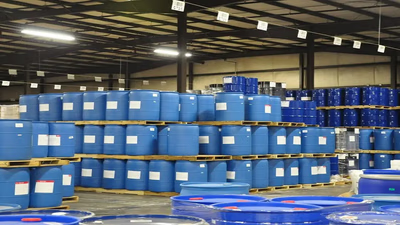
The Middle East is a pivotal player in the global chemical trade, driven by its extensive petrochemical production capabilities. Major exporters like Saudi Arabia, Qatar, and the UAE supply a variety of chemicals, including ammonia, sulfuric acid, and chlorine, to markets in Asia-Pacific, Europe, North America, and Africa. The region"s strategic location enhances logistical advantages, facilitating access to significant shipping routes. There is a growing focus on developing downstream industries, such as plastic conversion and polymer processing, aimed at adding value to the chemical supply chain. International investments and joint ventures have led to the establishment of large-scale chemical complexes, promoting local economic growth. Compliance with stringent regulations regarding product quality and safety is crucial for successful chemical trade. Despite a decline in market value due to regulatory restrictions, the chemical market is projected to recover, with an expected growth of 1.8% by 2024. The Middle East imports a variety of chemicals, including specialty chemicals and fertilizers, primarily from countries like China, India, Germany, and Turkey.
Bilateral and regional trade agreements, particularly among Gulf Cooperation Council (GCC) countries, are enhancing trade facilitation. The chemical trade landscape in the Middle East is characterized by a blend of local production and international sourcing, making it a dynamic and profitable sector."
-
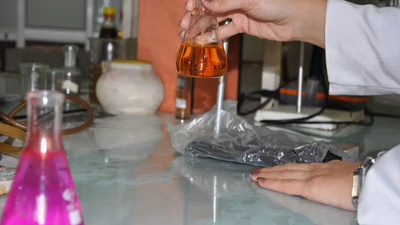
Laboratory chemicals and nanomaterials are essential in scientific research, providing the necessary substances for experimentation and analysis. Laboratory chemicals, including acids, bases, solvents, reagents, and organic and inorganic compounds, are crucial for various laboratory procedures. They are chosen for their purity and compatibility with specific applications. Laboratory nanomaterials, which are synthesized at the nanoscale, exhibit unique properties that enhance their utility across multiple scientific disciplines. These materials are increasingly important in sectors like electronics, medicine, and environmental science. The market for nanomaterials is expected to grow significantly, driven by innovations in nanochemistry and applications in diverse fields. Key applications include the development of nanoparticles, nanocomposites, quantum dots, and nanosensors, each serving specialized functions in technology and healthcare. The synthesis of these materials involves advanced techniques, and their handling requires stringent safety protocols due to potential health and environmental risks. As the demand for laboratory chemicals and nanomaterials rises, understanding their properties and applications becomes critical for industries and research institutions in the Middle East and beyond.
-
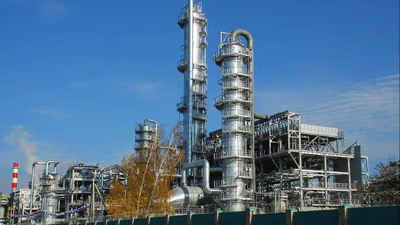
Chemicals are categorized based on various characteristics, including molecular composition, functional properties, supply chain position, and physical states. They can be classified into organic and inorganic chemicals, with organic chemicals containing carbon atoms and being associated with living organisms. Inorganic chemicals, on the other hand, include metals, minerals, acids, and bases. Additionally, chemicals are grouped by their roles in industries, such as solvents, surfactants, and catalysts. The supply chain classification includes raw materials, intermediates, and finished products. Specialty chemicals, which are high-value and customized, play crucial roles in sectors like electronics and healthcare. Agricultural chemicals, including fertilizers and pesticides, enhance crop yield and protect against pests. Pharmaceutical chemicals are essential for drug production, while basic chemicals serve as foundational materials in various industries.
Understanding these classifications aids in grasping market dynamics and the specialized applications of chemicals, which are also assessed for potential hazards to human health and the environment. This comprehensive categorization is vital for businesses engaged in import-export activities, particularly in the Middle East and West Asia, where trade platforms facilitate B2B interactions among verified exporters and importers.
-
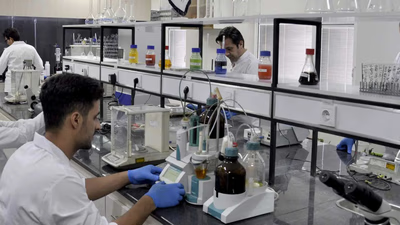
Synthetic chemical compounds have significantly impacted various industries, from pharmaceuticals to agriculture. Their development has enabled the creation of essential products such as antibiotics, polymers, and agrochemicals. In the pharmaceutical sector, synthetic compounds are crucial for producing drugs that treat diseases, including antibiotics and pain relievers. In agriculture, these compounds enhance crop yields and protect plants through pesticides and fertilizers. The textile industry benefits from synthetic dyes and pigments, which provide color to various materials. Surfactants, another category of synthetic compounds, are vital in detergents and personal care products, improving their effectiveness. Additionally, industrial chemicals, including sulfuric acid and solvents, play a key role in manufacturing processes. The versatility of synthetic compounds extends to food preservation, allowing for the creation of flavorful and long-lasting food products. Overall, the synthesis of chemical compounds has revolutionized multiple sectors, offering innovative solutions and enhancing product quality.
-
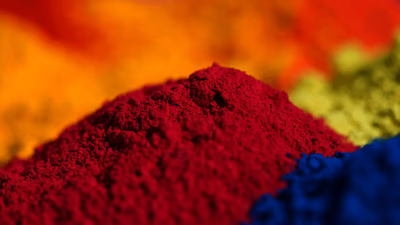
Food and pharmaceutical chemicals are essential for ensuring safety, quality, and efficacy in their respective industries. These chemicals are regulated by bodies like the FDA and EMA to protect consumer health. In food production, additives such as preservatives, antioxidants, and flavor enhancers play a vital role in enhancing flavor, texture, and shelf life. Similarly, in pharmaceuticals, active pharmaceutical ingredients (APIs) are crucial for therapeutic effects, while excipients aid in drug delivery and stability. The use of solvents is also significant in drug manufacturing. Food preservatives inhibit microbial growth and extend shelf life, while processing aids improve efficiency and safety. Additionally, packaging materials made from various chemicals protect food products from contamination and degradation. The development of these chemicals has advanced the pharmaceutical industry, enabling the production of a wide range of drugs. Overall, food and pharmaceutical chemicals are integral to public health, enhancing both food safety and drug efficacy.
-
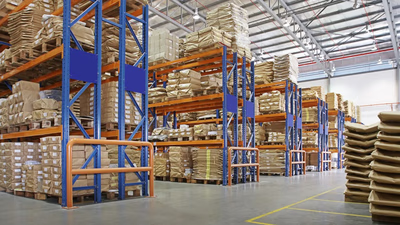
Natural chemical compounds exist in solid, liquid, and gaseous forms, comprising individual elements or complex molecules. Gases like oxygen and nitrogen are prevalent in the atmosphere, while water, a crucial liquid, exhibits unique properties affecting Earth"s geology and biology. Alkaloids, terpenes, flavonoids, and phenolic compounds represent diverse organic chemicals found in plants, each with significant biological activities and applications in pharmaceuticals, essential oils, and food products. Essential oils, proteins, and enzymes play vital roles in various industries, including food processing and medicine. Antibiotics, produced by microorganisms, are essential for treating infections. Minerals, essential for biological processes, are found in rocks and soil. Understanding these natural chemicals is crucial for industries such as agriculture, pharmaceuticals, and environmental science, highlighting their importance in trade and supply chain solutions across the Middle East and West Asia."
-
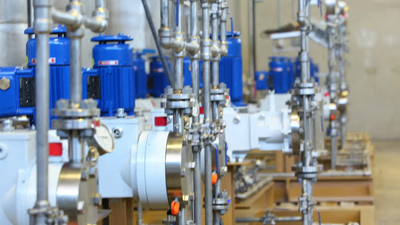
The chemical industry is a critical sector that encompasses the production, manufacturing, and distribution of a wide range of chemicals and chemical products. It supports various industries, including agriculture, healthcare, construction, and automotive, by providing essential materials and intermediates. Key components include industrial acids like sulfuric and hydrochloric acids, alkalies such as sodium hydroxide, and solvents like acetone and ethanol. The industry also produces surfactants, polymers, and specialty chemicals, which are vital for numerous applications. Moreover, the sector is focused on innovation and sustainability, investing in research and development to create eco-friendly alternatives and improve manufacturing processes. The production stages involve raw material sourcing, chemical synthesis, quality control, and distribution, ensuring compliance with safety and regulatory standards. Overall, the chemical industry plays a foundational role in modern economies, driving advancements and supporting a diverse range of applications across multiple sectors.
-
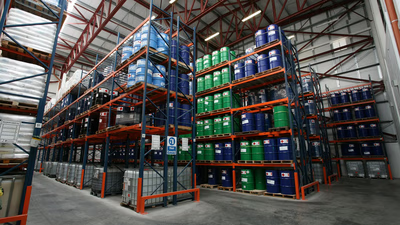
Chemicals are substances with distinct molecular compositions, existing in solid, liquid, gas, or plasma states. They are crucial in various industries, including manufacturing, agriculture, healthcare, and construction. Chemicals serve as raw materials for products like pharmaceuticals, plastics, and textiles, and are essential for agricultural practices as fertilizers and pesticides. The demand for chemicals is driven by economic growth, population increases, and technological advancements. Global trade in chemicals is influenced by international agreements, market competition, and regulatory compliance. Sustainable practices are gaining traction, focusing on reducing environmental impacts through the development of green chemicals. The chemicals market is also affected by price fluctuations and innovations in technology. Understanding the diverse categories of chemicals, such as organic and inorganic, is vital for industries reliant on these substances. While many chemicals are beneficial, some can be hazardous if not handled properly, emphasizing the need for adherence to safety guidelines.








